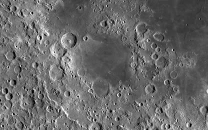Surge in number of satellites multiplies risk of cyber attacks
Launching of 581 objects in 2019 and 354 in first quarter of 2020 shows the alarming increase

PHOTO: REUTERS
Also, the satellite attack scenarios will be the focal point of the second exercise of the US “Advanced Battle Management System (ABMS),” expected to be held in June 2020.
The Institute of Strategic Studies Islamabad (ISSI) said this in a research report titled “Cyber Warfare in Outer Space: A cloud on the horizon” released on Saturday.
The report said that ensuring the security of space-based assets against potential cyber-attacks was not only a matter of concern for the US and other 192 states, but also for the global space economy which was expected to reach $1 trillion by the year 2040.
It said over 9, 000 objects have been launched into outer space from the time when the first satellite was launched in 1957. Currently, 5, 780 space objects are present in orbit, out of which as many as 1, 142 are in geo-synchronised orbit (GSO).
Since 2011, a gradual surge has been observed in the launching activities, but an alarming increase in the last three years is a matter of great concern. A total of 453 and 581 space objects were launched in 2018 and 2019 respectively. A total of 354 objects were launched in just first quarter of 2020, the report said.
It informed that this number is expected to increase with the expanding industry of cost-effective small satellites which will not only enhance the connectivity to billions of devices, but also offer various new, effortless and extremely interlinked nodes for the hackers. Keeping in view market incentives, manufacturers are paying little attention to incorporating standard security controls, leaving a great number of encryption loopholes.
The integration of emerging technologies like Artificial Intelligence (AI), quantum computing and machine learning with space communications will add fuel to the fire. Researchers are already testing an “intelligent network technology” which will make satellite operations more efficient, fast, adaptive, and above all more autonomous. It will enable the satellites to do a quick assessment of internal and external dynamics for resolving technical issues and emergency situation with minimum ground assistance.
Unlike 20th century satellites, this advance generation of intelligent and digitalised satellites will be safe from inadvertent orbital accidents, but at the same time more vulnerable to cyber-attacks, leading to a new kind of survivability paradox in outer space.
New methods of cyber warfare will revolutionise the entire spectrum of counter-space operations. Currently, states rely mainly on kinetic capabilities including an anti-satellite (ASAT) missile for physical destruction of space-based assets.
Furthermore, the ISSI report said cyber-attacks can corrupt communication through deletion and modification of important data stored in a satellite as well as ground control stations. Advancement in cyber technologies will make the interception, alteration and rerouting of satellite transmissions much easier. Cyber-attacks that disrupt the crucial satellite operations like Global Positioning System (GPS) will produce far reaching impacts on the military operations at strategic, operational and tactical levels because the majority of weapon systems, maritime operations and aviation depend on it. Cyber warfare in outer space will also damage the credibility and integrity of Intelligence, Surveillance and Reconnaissance (ISR) capabilities.
Published in The Express Tribune, April 5th, 2020.



















COMMENTS
Comments are moderated and generally will be posted if they are on-topic and not abusive.
For more information, please see our Comments FAQ